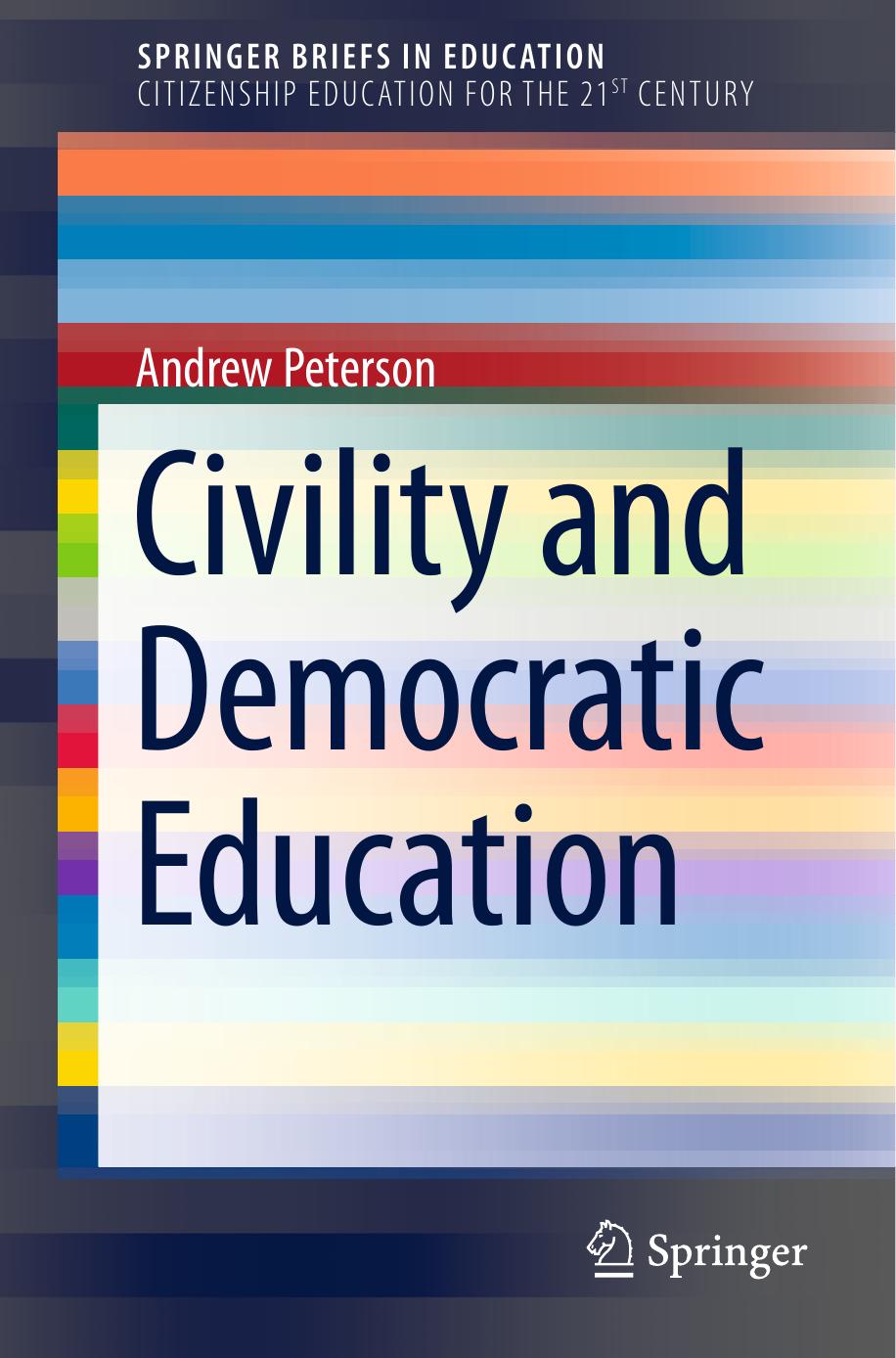Civility and Democratic Education by Andrew Peterson

Author:Andrew Peterson
Language: eng
Format: epub, pdf
ISBN: 9789811510144
Publisher: Springer Singapore
Keywords
CivilityMutual fellow-feelingWell-wishingCivic friendshipFormative processes
Introduction
In the introductory chapter of this book, two elements of political civility were identified: (1) civil conduct and (2) mutual fellow-feeling. The previous chapter concentrated on the first of these—civic conduct. The purpose of this present chapter is to attend to the second element by expanding the account of civility offered so far to explore the collective and communal basis of civility in contemporary, large, heterogeneous democracies. It will be argued that civility is strengthened by, and in turn strengthens, levels of connection between fellow citizens. The Aristotelian notion of civic friendship will be employed as a conceptual tool for examining a relationship between citizens characterised by fellow-feeling and well-wishing. The key argument of the chapter is that civility as a civic virtue for contemporary western democracies is strengthened when we understand it in relational terms and as intimately connected with a form of partnership between citizens who share a sense of mutual positive regard. In this sense, civility describes relationships (i.e. the relationship between A and B is civil or uncivil) and is supported or limited by the nature of our relationships (i.e. the positive regard between C and D supports civil conduct between them, while the dislike or hatred between X and Y severely limits civil conduct between them). Where levels of civic friendship are high, civility will be supported and where levels of civic friendship are low, incivility will increase. Civility operates in a fluid and dynamic way, able to rise and fall, and can therefore be understood as a precious resource which requires constant attention, cultivation and protection within democratic societies through formative processes. This latter point, it will be argued, also acts as a reminder that where democratic processes and relationships are problematic—when they are, for instance, corrupt, overly antagonistic, un-inclusive and so on—this will be to the further detriment of levels of civility.
My argument about the sociability needed to sustain civility is not new, and is a reasonably consistent strand of existing theorisations of civility. For example, Shils (1997, p. 340) has contended that “the individual who acts with civility regards the individuals who are its objects as being one with oneself, as being parts of a single entity”, while Boyd (2006, p. 866) suggests that civility “supposes an active and positive sociability between the person who is civil and the one to whom this virtue is directed”. Yet, different interpretations of the nature and depth of this positive sociability can be readily identified. According to Stephen Carter (1998, p. xii), civility involves “an attitude of respect, even love, for our fellow citizens”, while, and in contrast, John Cuddihy (1978, p. 210) argued that “in a regime of civility, everybody doesn’t love everybody. Everybody doesn’t even respect everybody. Everybody ‘shows respect for’ everybody”. I think the concepts of respect and love are instructive, but neither really hits the nail on the head—particularly without much more detailed explanation. Respect is certainly important, but in and of itself calls for respect run the risks of ubiquity and ambiguity.
Download
Civility and Democratic Education by Andrew Peterson.pdf
This site does not store any files on its server. We only index and link to content provided by other sites. Please contact the content providers to delete copyright contents if any and email us, we'll remove relevant links or contents immediately.
| Administration | Assessment |
| Educational Psychology | Experimental Methods |
| History | Language Experience Approach |
| Philosophy & Social Aspects | Reform & Policy |
| Research |
The Art of Coaching Workbook by Elena Aguilar(51137)
Trainspotting by Irvine Welsh(21608)
Twilight of the Idols With the Antichrist and Ecce Homo by Friedrich Nietzsche(18602)
Fangirl by Rainbow Rowell(9213)
Periodization Training for Sports by Tudor Bompa(8237)
Change Your Questions, Change Your Life by Marilee Adams(7718)
This Is How You Lose Her by Junot Diaz(6857)
Asking the Right Questions: A Guide to Critical Thinking by M. Neil Browne & Stuart M. Keeley(5741)
Grit by Angela Duckworth(5577)
Red Sparrow by Jason Matthews(5450)
Paper Towns by Green John(5163)
Room 212 by Kate Stewart(5091)
Ken Follett - World without end by Ken Follett(4705)
Housekeeping by Marilynne Robinson(4420)
The Sports Rules Book by Human Kinetics(4367)
Double Down (Diary of a Wimpy Kid Book 11) by Jeff Kinney(4252)
Papillon (English) by Henri Charrière(4238)
The Motorcycle Diaries by Ernesto Che Guevara(4069)
Exercise Technique Manual for Resistance Training by National Strength & Conditioning Association(4048)
